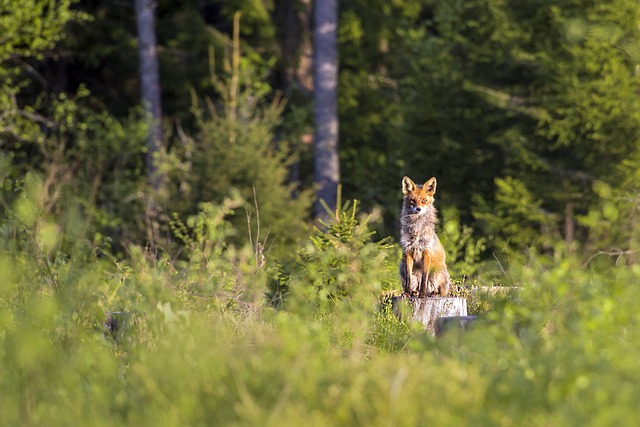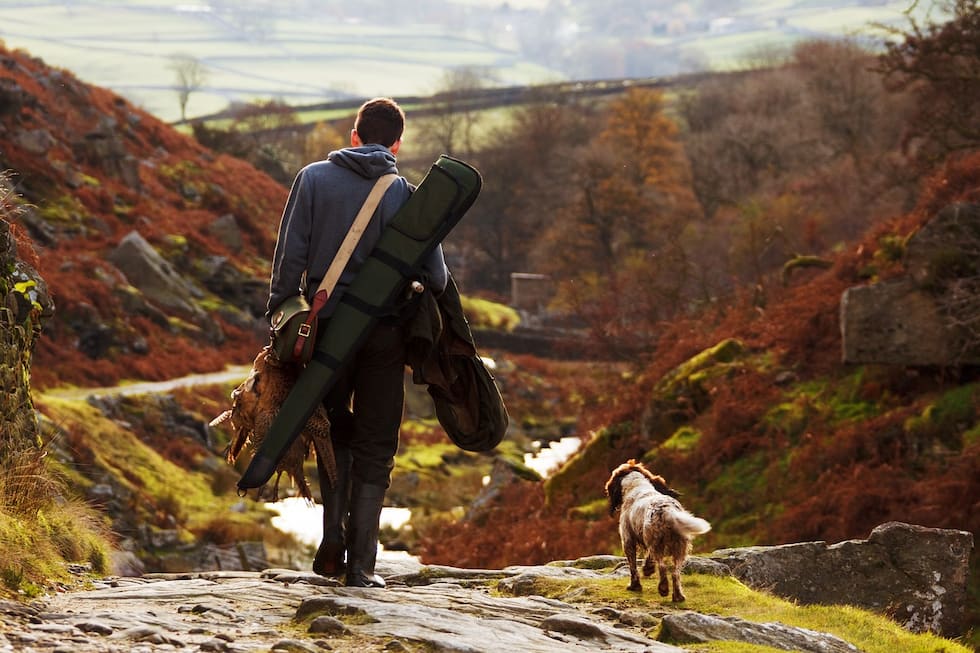Why were hunting laws passed? Conservation of animal life was the goal of hunting laws and regulations. However, indiscriminate hunting of all animal species could result in the spread of numerous species if it continued. In order to protect and preserve wildlife, hunting laws had to be upheld.
Before the American Revolution, there were hunting regulations and tags in existence in the United States. A few hunting laws existed in New England in the 1700s, but it wasn’t until the mid- and late-1800s that it became clear that licenses and tags for hunting were desperately needed.
In the mid- and late 1800s, as railways, trappers, explorers, and colonists flooded into the western United States, many species, including the bison, went extinct. Fortunately, a number of forward-thinking people understood that hunting could not be allowed to continue unchecked. As a result, many states hired their first game wardens and launched their first seasons.
Keep reading.
Table of Contents
Why Were Hunting Laws Passed?
It’s important to approach this issue holistically and from the perspectives of both the hunter and the animal. It’s not complicated in the slightest. It is designed to exert control over both of the aforementioned.
We are well aware that sometimes people can be excessively cruel or insatiable. Walking the forest trails frequently, poachers and illegal hunters attempt to profit from the sale of valuable and, let’s face it, expensive goods. And the worst thing is that they shoot and kill animals without considering any of the nuances or whether it is legal to do so. As a result, many people avoid such government control, but regrettably not all. Therefore, always ask for the proper documents and permits from such an “entrepreneur.”
Additionally, we are very familiar with your state’s laws, many of which are state-specific and first and foremost seasonal. Several factors contribute to this, once more. The first is to restrict access by humans to animal nests, breeding grounds, and times in order to prevent extinction of entire species. After all, they each serve a crucial role in the cycle of life. Plus, the “bag” is limited, which means limiting the animals you can take with you. Here, the goals are similar. Consider Yellowstone Park as a good illustration. Consider how the ecosystem changed after people decided to kill all the wolves. There were more deer breeding because there were no predators on the reservation. But when fourteen wolves were introduced into the park in 1995, researchers and scientists were astounded at how it significantly changed the forest’s microclimate. Undoubtedly, fourteen wolves were unable to consume all the deer, but they did influence their behavior by making them more selective in where they chose to graze and by making them avoid specific parts of the park. These areas saw the resurgence of vegetation. Five times as many trees were planted in six years. The trees were needed by the first beavers so they could construct dams. In the backwaters, muskrats, ducks, and fish could be seen. The presence of wolves decreased the number of jackals, which in turn increased the quantity of hares and mice, which attracted hawks, ferrets, and foxes to the park.
Another problem is nocturnal hunting. It is completely prohibited in some areas. In other places, such as fur-bearing and small pest animals, it is permitted during specific times and on particular animals. By their sizeable population, this is the exact opposite of justified. And once more, Australia’s history can serve as an illustration. At that time, rabbit populations there were rapidly increasing, destroying crops, and no one knew what to do with this wonder. Again, perhaps Greenpeace can comment on this, but why should we experience such hardship when we can manage it in this manner?
While we’re at it, it’s also important to remember that the laws also apply to the weapons you’re using. The question of humanity is what this law is more motivated by. Experienced warriors would not be required to divulge the details of their trade (for sure, went out and shot) if hunting were a simple and straightforward activity that was always won only by men. The moment the man began using firearms in this line of work, all of his problems disappeared. But no matter how you look at it, nature will always bring about circumstances where you might end up with nothing. The animal also deserves a quick, painless death if we’re talking about fair play. Additionally, this law reduces the possibility of mutilating game, which can occur, for instance, when using a large caliber weapon. The fact is that, despite how archaic these justifications may seem, they are crucial for preserving the local area’s microclimate. Even though it’s indirect and seems unrelated, the sheer volume of laws that vary for each state, licenses for specific weapons and equipment, the removal of game, a lack of knowledge or experience, and other nuances all contribute to the process’ deterrence. Because of this, there will be less competition and fewer fools who will undermine it and refuse to take it seriously. Consider how it safeguards your pocket as well. Because it’s an expensive hobby, if you consider the whole complex. Not everyone is eager to take the risk, either.
In conclusion, I just have one thing to say. Yes, just like any other animal, man is a predator, and you and I are both a part of nature. But it’s crucial to keep in mind that there is a delicate balance in place that must not be disturbed. Yes, man is the most intelligent animal, if that’s what’s being said. However, nature is much wiser than we are, and she will always find a way to dominate us.
See more about What Is A Truffle Hunting?
What Was The Main Justification For Hunting Laws?
In the majority of states, the right response was to protect wildlife for future generations. In contrast to saving them for future generations, the focus was more on protecting animal populations.
Today, you might need to know where to look for laws and guidelines for any species you intend to hunt.
To locate hunting regulations, places to hunt, and more about the specific species, including
- publications from the government.
- websites of wildlife agencies.
- hunting access handbooks or guides.
- software for mapping and employees of the agency.

Which Organization Is Responsible For Overseeing Florida’s Hunting Legislation And Rules?
- the Fish and Wildlife Conservation Commission.
- The US Fish & Wildlife Service.
- The Association for International Hunter Education.
- It is the National Rifle Association.
What Are The Distinctions Between Laws And Regulations?
- Laws have existed for a very long time. Regulations can be modified quickly**
- Laws can be changed quickly. Regulations are long-standing
- Laws are governed by the federal government, while the state government governs regulations
- Lawbreakers are brought before a criminal court, while rule breakers are brought before a civil court.
What Led To The Initial Adoption Of Hunting Laws And Regulations?
- assisting market hunters in obtaining enough game to survive.
- to defend wildlife against overharvesting and market hunting by market hunters.
- for the purpose of assisting hunters in receiving a fair price for the food they harvest from wild game.
- to defend wildlife from legal hunting and conservation initiatives against market hunting.
What Is The Main Justification For Opposition To Hunting Among Non-hunters?
- the taking of wild animals for food.
- the availability of weapons on state-owned property.
- using treestands to hunt game.
- Poor hunter behavior.
When Was Hunting Regulated?
Regulations first appeared in the 1800s. Since then, a lot has changed regarding the problem and what hunting licenses stand for. Many hunters engage in online education as part of this.
You can find many more benefits for hunting laws than were initially set out:
- To conserve wildlife for future generations to enjoy
- By establishing hunting seasons to restrict harvesting and avoid mating and nesting times, wildlife management laws were passed to enable the game to flourish.
- restricting the gear and hunting techniques.
- Setting “bag” limits.
- establishing checkpoints and mandating the use of game tags to enforce the laws.
Besides ensuring the availability of game for the future, these laws:
- To protect hunters and non-hunters, set up safety regulations for hunting.
- Give all hunters, regardless of weapon, the same opportunity.
- Obtaining license fees will guarantee funding for wildlife programs.
Frequently Asked Questions
Let’s move on to the next topic and examine the most frequently asked queries regarding hunting laws.
Who Decides The Rules For Hunting?
A wildlife management organization establishes the hunting laws in several states. These organizations frequently hold regular meetings to decide what changes are required and to make sure the laws are being followed.
When it comes to the conservation of game, many states are vocal today. These hunting laws are helpful.
Why Do People Go Hunting In The First Place?
Wildlife and other feral animals are frequently hunted for food (meat), entertainment, and to get rid of the dangerous predators that pose a threat to people and other domestic animals. You cannot, however, hunt any animal while hunting.
Hunting of animals that are considered endangered is prohibited. The same is true for non-threatened and non-food-dependent animals.
Why Do We Practice Animal Conservation?
Not all animals are suitable for hunting. As I previously stated, animals that are threatened with extinction receive proper care to increase their population. This justification underlies the reality of wildlife conservation.
Final Words
The balance of that local (or even global) ecosystem has been upset throughout the history of our planet as species have gone extinct.
Resource availability declines, and species adapt to survive. All remaining life forms eventually undergo the changes required to maintain their ability to coexist peacefully. The ecosystem achieves equilibrium once more.
For instance, if bees suddenly vanished, those flowers they typically gather from would no longer be pollinated. The flowers themselves may start to dwindle if there is insufficient pollination.
The ecosystem would be further impacted if those flowers disappeared. More species would be impacted by this cascade effect, which would force all impacted species to adapt as necessary until balance is once more restored.
If any species vanished as a result of unchecked hunting, a comparable circumstance would develop. If a species’ population increases to the point where it endangers the survival of other species, it may have the same effect.
I appreciate you reading.


